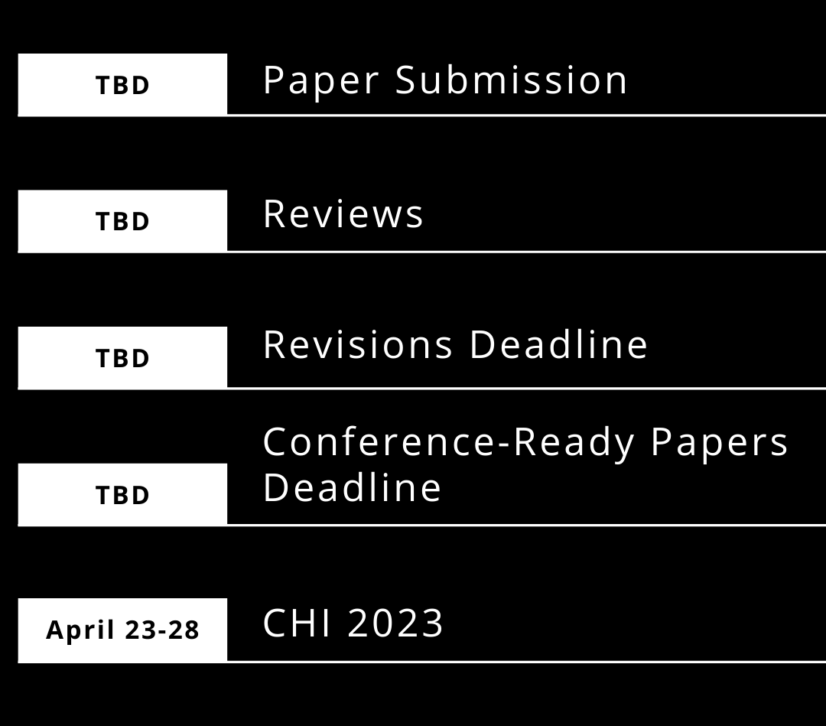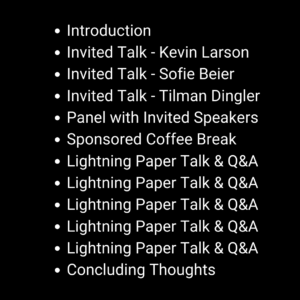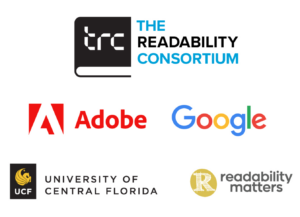Proposed CHI 2023 Workshop on Reading, Readability, and Personalization
Reading on screens is quickly becoming the norm across all age groups, from schoolchildren to aging adults, and is changing how we read. On the other hand, reading digitally presents many technological opportunities for tailoring the text to the reader, from making personalized adjustments to the content to changing the typography and format features of the documents. Digital reading tools and applications are putting increasingly more customization controls in the hands of the readers. Together with advances in datasets and machine learning, we are learning increasingly more about how to improve reading outcomes for readers with diverse needs. This workshop will bring together interdisciplinary expertise from the vision science, natural language processing, education, and design/typography communities where they intersect on questions around interfaces for reading, readability, and personalization.
Format:
This workshop will feature a combination of invited talks from experts covering different fields that touch reading and readability, as well as a call for short papers, the best of which will be presented at the workshop as lightning paper talks.
Goals:
- To find a common home and regular meeting opportunity for this rapidly developing research area
- To spark collaboration opportunities at interdisciplinary junctions
- To grow a research community with common interests
Accessibility
It’s important to us that our webpage and workshop be accessible for everyone. We provide text alternatives for images, and in-person and virtual workshop attendance options. Our Diversity and Accessibility Chair, Aleena Niklaus, helps to ensure our webpage and workshop are accessible for everyone. Please contact us if you observe an accessibility issue.
Speakers

Call for Papers
We invite submissions of a maximum of 4 pages, excluding references. The length of the submission should be commensurate with the contribution. Submissions should follow the ACM Conference Proceedings format and will be accepted through the CMT platform.
Authors should keep in mind that the final acceptance to the conference will be based on the quality of the paper and not the supplementary material. Video submissions are not required, but encouraged to help demonstrate interactive systems that are otherwise difficult to showcase using images or text.
Videos should use the MP4 format with H.264 codec and file size should not exceed 100 MB. We recommend the standard 1920×1080 resolution (1280×720 as an alternative). Any supplementary materials, including the video, have to be anonymized for review.
Review process: Submissions will be sent out for review to two reviewers, at least one of which will be from the HCI community, and another may be an external expert touching on the paper’s focus area(s) (e.g., NLP, design, vision science, education, etc.). Reviewers will rate the quality of the submission and its contributions, as well as topic fit to the workshop and to the CHI community. At least one author of each accepted paper must be registered for the workshop and for at least one day of the CHI conference. The top rated accepted papers will be presented as spotlight presentations at the workshop. Based on reviewers’ recommendations, selected papers will receive best paper awards, funded by the workshop sponsors.
Relevant Topics:
- Format readability and typographic legibility
- Typographic, formatting, or design considerations for text
- Future of documents and document formats for personalization or usability
- Accessible reading experiences and tools
- Novel interaction modalities within reading interfaces
- Reading indices; automatic text simplification & leveling approaches
- Reading behavior tracking and predictive analytics
- Psychophysical, eye tracking, and brain imaging studies of reading
Important Dates for Paper Submissions
WORKSHOP SCHEDULE
Interested in readability?
Sign up with your email address to receive news and updates about the readability research community!



